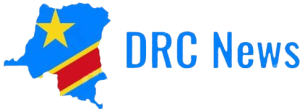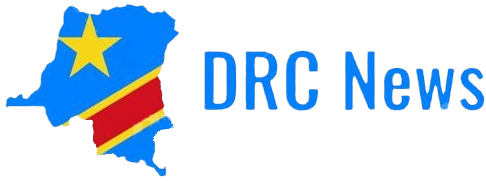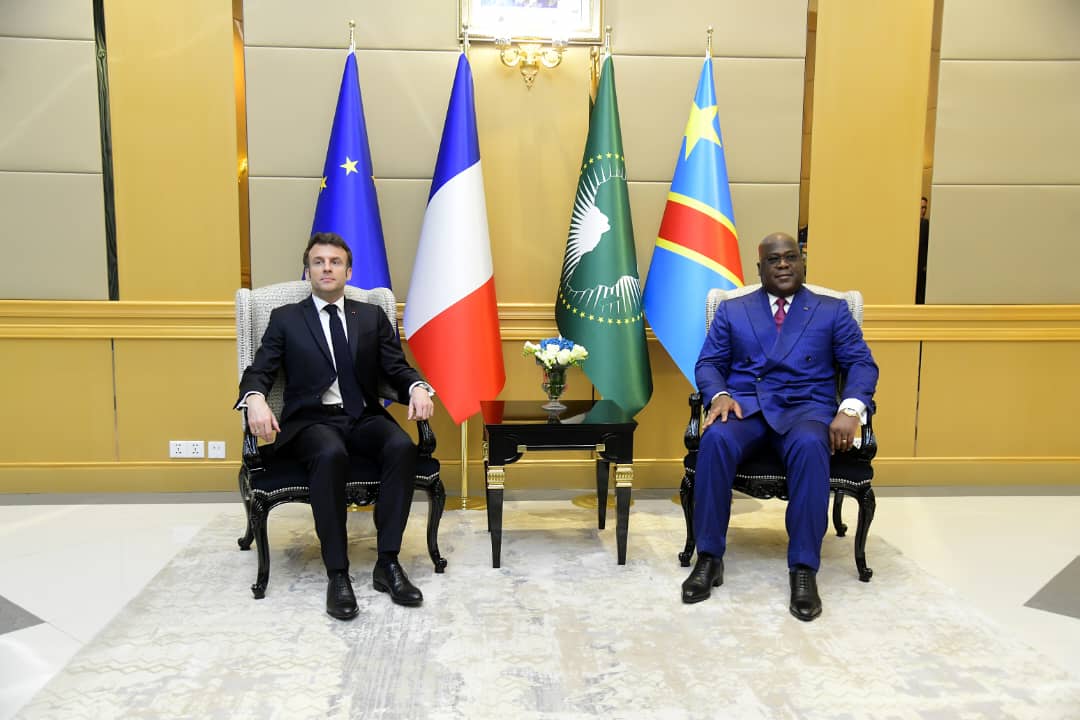Violence in eastern Democratic Republic of Congo that’s displaced nearly 7 million people could delay elections scheduled for December, President Felix Tshisekedi has told French President Emmanuel Macron.
Voter enrollment has started in the rest of the country, and Tshisekedi, during a meeting Saturday in Kinshasa, urged Macron and the European Union to support a peace plan and a process for displaced people to return home and register to vote.
“If not, we risk a considerable delay that could impact the planned date” for the vote, Tshisekedi told reporters.
A surge in violence in eastern Congo has displaced more Congolese than at any time in the 30-year history of conflict in the region, according to United Nations figures. More than one hundred armed groups are active in the mineral-rich east, which borders Uganda, Rwanda and Burundi.
Tshisekedi and a UN group of experts accuse Rwanda of supporting one of the armed groups, the M23, which says it’s protecting Congolese of Rwandan heritage. An ongoing offensive by the group has forced hundreds of thousands to flee and threatens the trading hub of Goma.
Rwanda denies backing the rebels, and has committed to a regional peace plan overseen by ex-Kenyan President Uhuru Kenyatta and Angolan President Joao Lourenco.
“Those who are obstacles to this plan know what they’re exposed to, including sanctions,” Macron said.
Macron met with Lourenco on Friday as part of a four-nation tour to shore up French relations in Central Africa and highlight the importance of the Congo Basin, the world’s second largest tropical rainforest, in the fight against climate change.
On Saturday, Tshisekedi and Macron spoke about the protection of Congo’s forests as well as trade and the mining of strategic minerals. Congo is a major producer of copper and cobalt, key metals in the global energy transition.
The leaders discussed the support of French geological survey, BRGM, in mapping Congo’s mineral deposits, Tshisekedi said.
Both presidents also mentioned the checkered, post-colonial history of France in Africa, and called for a change in their relationship. In 2021, Macron traveled to Rwanda to accept some responsibility for supporting the perpetrators of the 1994 genocide there. Violence later spread to eastern Congo; its legacy still haunts the region and is at the root of many of the east’s conflicts.
Macron pushed back against claims that France bore ongoing responsibility for the persistent violence.
“Since 1994, it’s not the fault of France, forgive me for saying it in such raw terms, that you have not been capable of restoring sovereignty — neither military, security, or administrative — in your country. This is the reality,” Macron said Saturday. “You don’t need to search for guilty parties outside the country.”
Congo was colonized by Belgium but has long had close ties to France. It’s now the world’s largest French-speaking nation and has become “the center of gravity” of the language, Macron said.
CREDIT: Bloomberg


